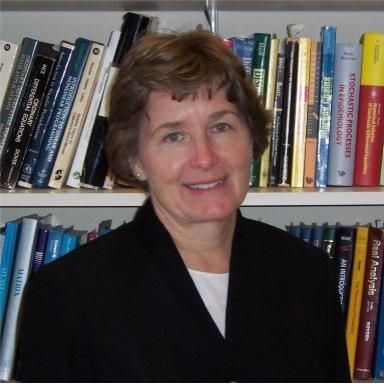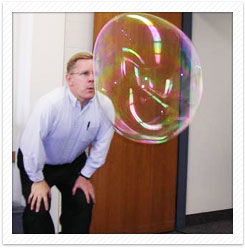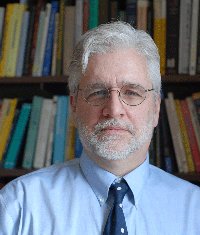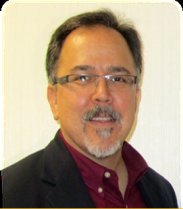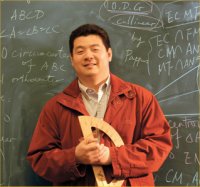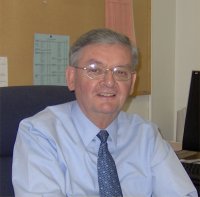Mathematical Association of America
Texas Section 93rd Annual Meeting
Speakers
Workshop: An Introduction to Stochastic Models in Mathematical BiologyAbstract: Classic models in mathematical biology describe the growth and interactions within or among populations, such as exponential or logistic growth, predator-prey, competition, or infectious disease spread within a population. These classic models are often formulated in terms of ordinary differential equations, where population sizes change continuously over time. When population sizes reach low levels, the continuous state assumption of these deterministic models is no longer realistic. To more accurately address questions about the probability of species survival, or of species invasion, or of disease outbreaks, stochastic models that take into account the discrete number of individuals are required. In this workshop, we discuss continuous-time Markov chain formulations for some of these classic population and epidemic models and address questions about probability of survival. MATLAB programs are used to illustrate the behavior of deterministic models versus Markov chain models. |
How Math Is Changing The WorldAbstract: In Oct 2010, an article called "How much math do we really need?" was published in the Washington Post. The author, a mathematician, wrote "Unlike literature, history, politics and music, math has little relevance to everyday life" and "All the mathematics one needs in real life can be learned in early years without much fuss." Is this true? Have you ever been asked "What can you do with a degree in math?" Besides teaching, many people are clueless on what you can do with strong math skills. In this talk, we will talk about some of the exciting things mathematicians in business, industry, and government are doing in their careers and how these things are changing the world. And we will reveal the three things that recruiters say every math student should do to get a job. |
Welcoming Address: Extreme calculusAbstract: There is more to elementary calculus than may first meet the eye, especially to those of us who teach it again and again. With appropriate help from graphical, numerical, and algebraic computing, well-worn calculus techniques and topics---polynomials, optimization, root-finding, methods of integration, and more---often point to deeper, more general, more interesting, and sometimes surprising mathematical ideas and techniques. I'll illustrate my thesis with figures, examples, and a lot of e-calculation, aiming to take elementary calculus to its interesting extremes. |
Award Address: My Favorite Tools for Teaching and Learning MathematicsAbstract: The teaching and learning of mathematics involves attending to student thinking, choosing the right tasks and examples, and recognizing strategies that enhance active participation and making connections. Some of my favorite tools for engaging students in their learning come from a toolbox of extended problem analyses, dynamic animations, empathy, discipline, and grouping strategies. I discuss a few of my favorite tools that I use to address the following: How can we use a mathematical task to bring forward student thinking or illustrate connections for inservice teachers and graduate students? How can we get a classroom of 120 students to participate in making mathematical conjectures? How can we help future mathematics teachers make mathematical connections that span many years of mathematics? How can we use technology to enhance our teaching and student understanding? What can we do to help students feel empowered in their learning? Over the years, I continue to tinker, find, and invent new tools as I strive to improve myself as a teacher and learner of mathematics. |
From Classroom to ContestAbstract: We are going to talk about a few interesting contest problems (up to the USA/International math Olympiad level) that arise from regular high school math classroom discussions. For example, how does the fact that of 1-16+64 = 1+16+32 being perfect lead to IMO 2006 problem 1, and how do Pythagorean triples lead to families of infinite triples of equal length, pairwise orthogonal vectors in the 3-D space. |
Closing Address: Ethical and Responsible Conduct of ResearchAbstract: Research ethics involves the application of moral rules and professional codes of conduct to a variety of topics involving scientific research. The importance of adherence to ethical norms in research will be discussed, with emphasis on the key issues of scientific misconduct, publishing practices and responsible authorship. Numerous examples from the current mathematics literature of plagiarism, self-plagiarism and various questionable publishing practices will be provided. |
